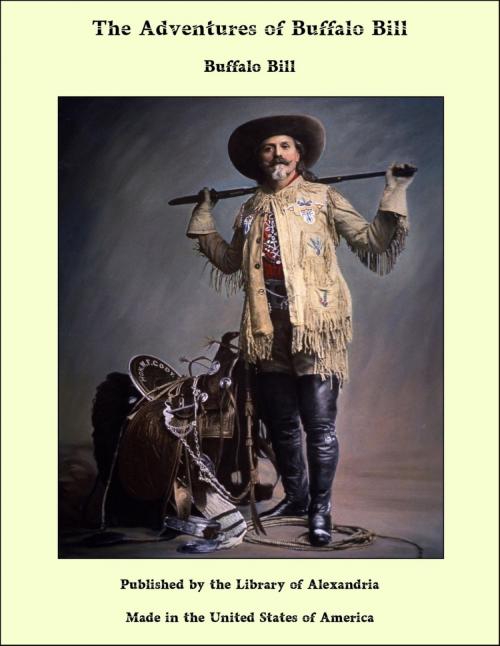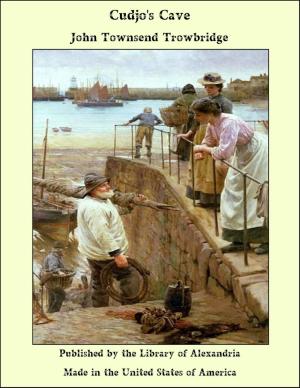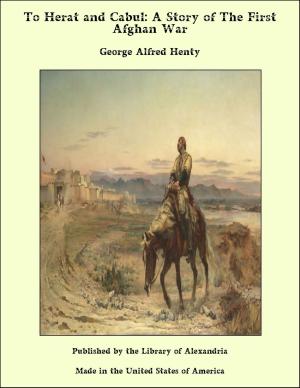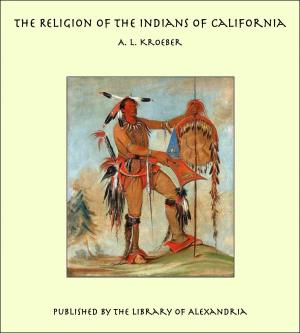The Adventures of Buffalo Bill
Nonfiction, Religion & Spirituality, New Age, History, Fiction & Literature| Author: | Buffalo Bill | ISBN: | 9781465628732 |
| Publisher: | Library of Alexandria | Publication: | March 8, 2015 |
| Imprint: | Language: | English |
| Author: | Buffalo Bill |
| ISBN: | 9781465628732 |
| Publisher: | Library of Alexandria |
| Publication: | March 8, 2015 |
| Imprint: | |
| Language: | English |
In the early settlement of Kansas common-school advantages were denied us, and to provide a means for educating the few boys and girls in the neighborhood of my home, a subscription school was started in a small log cabin that was built on the bank of a creek that ran near our house. My mother took great interest in this school, and at her persuasion I returned home and became enrolled as a pupil, where I made satisfactory progress until, as the result of a quarrel with a schoolmate, I left the town and started across the plains with one of Russell, Majors & Waddell’s freight trains. The trip proved a most enjoyable one to me, although no incidents worthy of note occurred on the way. On my return from Fort Kearny I was paid off the same as the rest of the employés. The remainder of the summer and fall I spent in herding cattle and working for Russell, Majors & Waddell. In May, 1857, I started for Salt Lake City with a herd of beef cattle, in charge of Frank and Bill McCarthy, for General Albert Sidney Johnston’s army, which was then being sent across the plains to fight the Mormons. Nothing occurred to interrupt our journey until we reached Plum Creek, on the South Platte River, thirty-five miles west of old Fort Kearny. We had made a morning drive, and had camped for dinner. The wagon masters and a majority of the men had gone to sleep under the mess wagons. The cattle were being guarded by three men, and the cook was preparing dinner. No one had any idea that Indians were anywhere near us. The first warning we had that they were infesting that part of the country was the firing of shots and the whoops and yells from a party of them, who, catching us napping, gave us a most unwelcome surprise. All the men jumped to their feet and seized their guns. They saw with astonishment the cattle running in every direction, they having been stampeded by the Indians, who had shot and killed the three men who were on day herd duty, and the redmen were now charging down upon the rest of us. The McCarthy boys, at the proper moment, gave orders to fire upon the advancing enemy. The volley checked them, although they returned the compliment, and shot one of our party through the leg. Frank McCarthy then sang out, “Boys, make a break for the slough yonder, and we can then have the bank for a breastwork.” We made a run for the slough, which was only a short distance off, and succeeded in safely reaching it, bringing with us the wounded man. The bank proved to be a very effective breastwork, affording us good protection. We had been there but a short time when Frank McCarthy, seeing that the longer we were corralled the worse it would be for us, said, “Well, boys, we’ll try to make our way back to Fort Kearny by wading in the river and keeping the bank for a breastwork.” We all agreed that this was the best plan, and we accordingly proceeded down the river several miles in this way, managing to keep the Indians at a safe distance with our guns, until the slough made a junction with the main Platte River. From there down we found the river at times quite deep, and in order to carry the wounded man along with us, we constructed a raft of poles for his accommodation, and in this way he was transported. Occasionally the water would be too deep for us to wade, and we were obliged to put our weapons on the raft and swim. The Indians followed us pretty closely, and were continually watching for an opportunity to get a good range and give us a raking fire. Covering ourselves by keeping well under the bank, we pushed ahead as rapidly as possible, and made pretty good progress, the night finding us still on the way and our enemies yet on our track.
In the early settlement of Kansas common-school advantages were denied us, and to provide a means for educating the few boys and girls in the neighborhood of my home, a subscription school was started in a small log cabin that was built on the bank of a creek that ran near our house. My mother took great interest in this school, and at her persuasion I returned home and became enrolled as a pupil, where I made satisfactory progress until, as the result of a quarrel with a schoolmate, I left the town and started across the plains with one of Russell, Majors & Waddell’s freight trains. The trip proved a most enjoyable one to me, although no incidents worthy of note occurred on the way. On my return from Fort Kearny I was paid off the same as the rest of the employés. The remainder of the summer and fall I spent in herding cattle and working for Russell, Majors & Waddell. In May, 1857, I started for Salt Lake City with a herd of beef cattle, in charge of Frank and Bill McCarthy, for General Albert Sidney Johnston’s army, which was then being sent across the plains to fight the Mormons. Nothing occurred to interrupt our journey until we reached Plum Creek, on the South Platte River, thirty-five miles west of old Fort Kearny. We had made a morning drive, and had camped for dinner. The wagon masters and a majority of the men had gone to sleep under the mess wagons. The cattle were being guarded by three men, and the cook was preparing dinner. No one had any idea that Indians were anywhere near us. The first warning we had that they were infesting that part of the country was the firing of shots and the whoops and yells from a party of them, who, catching us napping, gave us a most unwelcome surprise. All the men jumped to their feet and seized their guns. They saw with astonishment the cattle running in every direction, they having been stampeded by the Indians, who had shot and killed the three men who were on day herd duty, and the redmen were now charging down upon the rest of us. The McCarthy boys, at the proper moment, gave orders to fire upon the advancing enemy. The volley checked them, although they returned the compliment, and shot one of our party through the leg. Frank McCarthy then sang out, “Boys, make a break for the slough yonder, and we can then have the bank for a breastwork.” We made a run for the slough, which was only a short distance off, and succeeded in safely reaching it, bringing with us the wounded man. The bank proved to be a very effective breastwork, affording us good protection. We had been there but a short time when Frank McCarthy, seeing that the longer we were corralled the worse it would be for us, said, “Well, boys, we’ll try to make our way back to Fort Kearny by wading in the river and keeping the bank for a breastwork.” We all agreed that this was the best plan, and we accordingly proceeded down the river several miles in this way, managing to keep the Indians at a safe distance with our guns, until the slough made a junction with the main Platte River. From there down we found the river at times quite deep, and in order to carry the wounded man along with us, we constructed a raft of poles for his accommodation, and in this way he was transported. Occasionally the water would be too deep for us to wade, and we were obliged to put our weapons on the raft and swim. The Indians followed us pretty closely, and were continually watching for an opportunity to get a good range and give us a raking fire. Covering ourselves by keeping well under the bank, we pushed ahead as rapidly as possible, and made pretty good progress, the night finding us still on the way and our enemies yet on our track.















